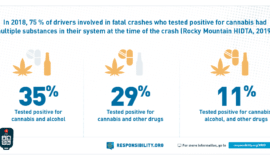Tough Penalties For BAC Test Refusal
Test refusals are a major problem for the criminal justice system in confronting and identifying drunk drivers. Many DUI suspects refuse to answer questions, perform standardized field sobriety tests (SFSTs), or provide breath samples. BAC test refusals are common with repeat offenders, primarily because they know that they will test well above the legal limit. Moreover, these offenders are aware that BAC test refusal deprives the court of the most important evidence needed to secure an impaired driving conviction. With this in mind, we believe penalties for refusing a breath or blood test should be equal to or greater than those for failing a test.
Equally problematic is the fact that in many jurisdictions, sanctions for BAC test refusal are much less severe than sanctions for a DUI conviction. Therefore, offenders are not incentivized to provide a sample.
A No Refusal, or warrant program, enables coordination between police officers, paralegals, prosecutors, nurses, and judges to ensure BAC testing when probable cause has been established. If the suspect refuses to provide a breath sample, the on-site or on-call prosecutor reviews the case and may present a warrant to the on-site or on-call judge. If the judge grants the warrant, qualified on-site personnel may draw a blood sample from the suspect. No Refusal programs are one option that provide law enforcement with an avenue to increase compliance with BAC testing. Read our complete policy position here.
Additional resources:
No Refusal DWI Programs (Texas District and County Attorneys Association)
















